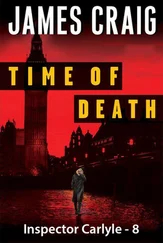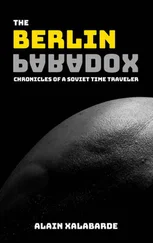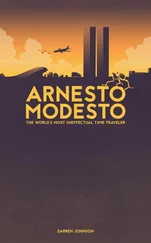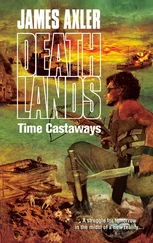James Gleick - Time Travel
Здесь есть возможность читать онлайн «James Gleick - Time Travel» — ознакомительный отрывок электронной книги совершенно бесплатно, а после прочтения отрывка купить полную версию. В некоторых случаях можно слушать аудио, скачать через торрент в формате fb2 и присутствует краткое содержание. Год выпуска: 2016, Издательство: Knopf Doubleday Publishing Group, Жанр: Старинная литература, на английском языке. Описание произведения, (предисловие) а так же отзывы посетителей доступны на портале библиотеки ЛибКат.
- Название:Time Travel
- Автор:
- Издательство:Knopf Doubleday Publishing Group
- Жанр:
- Год:2016
- ISBN:нет данных
- Рейтинг книги:5 / 5. Голосов: 1
-
Избранное:Добавить в избранное
- Отзывы:
-
Ваша оценка:
- 100
- 1
- 2
- 3
- 4
- 5
Time Travel: краткое содержание, описание и аннотация
Предлагаем к чтению аннотацию, описание, краткое содержание или предисловие (зависит от того, что написал сам автор книги «Time Travel»). Если вы не нашли необходимую информацию о книге — напишите в комментариях, мы постараемся отыскать её.
Time Travel — читать онлайн ознакомительный отрывок
Ниже представлен текст книги, разбитый по страницам. Система сохранения места последней прочитанной страницы, позволяет с удобством читать онлайн бесплатно книгу «Time Travel», без необходимости каждый раз заново искать на чём Вы остановились. Поставьте закладку, и сможете в любой момент перейти на страницу, на которой закончили чтение.
Интервал:
Закладка:
Eternity is divided into sections, each associated with a particular century of human history. To go from one section to another, an Eternal rides the kettle: the arrangement feels like stacked floors in a tall skyscraper. Best not to look too closely at the workings. “The laws of the ordinary universe just don’t apply to the kettle shafts!” Between Time and Eternity is a boundary or barrier—an “immaterial” divider—likewise best not examined too closely: “He paused again at the infinitely thin curtain of non-Space and non-Time which separated him from Eternity in one way and from ordinary Time in another.” Eternity seems to adjoin the “real” universe anywhere and everywhere. Anyway, transportation from place to place never seems to be a problem. Is Eternity in the fourth dimension? Asimov doesn’t bother with the fourth dimension. That’s old news. He does tip his hat to the uncertainty principle of quantum mechanics:
The barrier that separated Eternity from Time was dark with the darkness of primeval chaos, and its velvety non-light was characteristically specked with the flitting points of light that mirrored sub-microscopic imperfections of the fabric that could not be eradicated while the Uncertainty Principle existed.
Like Wells not-quite-describing his time machine, Asimov is using his literary wiles to help readers think they are visualizing something that can’t be visualized because, after all, it’s nonsensical. “Velvety non-light.” An artful dodge. *4And nice touch, the uncertainty principle decorating the primeval darkness with specks of light.
Now comes a problem of narrative. People live in Eternity, and they do things, one after another, in order to give the story a plot, and before long the fact of narrative makes it impossible to avoid noticing that they (the Eternals), too, operate in time. They remember the past and they worry about the future, just like everyone else. They don’t know what’s going to happen next. Whatever it would be like to be truly outside time, this magical state does not appear conducive to storytelling. Time passes here, too. “Men’s bodies grew older and that was the unavoidable measure of time.” They call the years “physioyears” and the hours “physiohours.” They tell one another, “See you tomorrow.” Even in Eternity, they wear wristwatches. It can’t be helped.
Since this Eternity is created not by theologians but by technocrats, it does have a beginning and an end. It begins in the twenty-seventh century, after the development of the necessary machinery (“temporal fields” and whatnot), and ends in the “unplumbable entropy death ahead.” In the meantime, what fun they have, playing god! The Sociologists profile societies and suggest “reality changes” to fork their history. The Life Plotters diagram the affected lives. The Computers work out the “psycho-mathematics.” The Observers go into Time to get data, and the Technicians do the dirty work—e.g., jam the clutch on a vehicle and start a chain of events that prevents a war. When a Technician goes into action, a new branch of possibility becomes real. Then the old branch never happened. It becomes an alternative remembered only in the archives of Eternity.
They believe they are do-gooders.
We work to plot out all the details of everywhen [explains Technician Harlan] from the beginning of Eternity to where Earth is empty, and we try to plot out all the infinite possibilities of all the might-have-beens and pick out a might-have-been that is better than what is and decide where in Time we can make a tiny little change to twist the is to the might-be and we have a new is and look for a new might-be, forever, and forever.
So, for example, Harlan gets out of his kettle, enters Time, and shifts a container from one shelf to another. (He has found the office supplies, apparently.) As a result, a man overlooks something he needs, gets angry, makes a bad decision, a meeting is canceled, a death is postponed—change ripples outward, and some years later what would have been a busy spaceport has vanished from existence. Mission accomplished. If some people must die so that others might live, so be it. You can’t make an omelet without breaking eggs, the Eternals have learned. It isn’t easy, being responsible for “the happiness of all the human beings who were or ever would be.”
What do they value, these masters of the universe? How do they weigh one possible reality against another? It’s not always clear. Nuclear war: bad. Drug addiction: bad. Happiness: good, but how to assess it? The Eternals seem to dislike extremes. One century has an excess of hedonism, and Harlan contemplates an improvement: “a different branch of possibility would become real, a branch in which millions of pleasure-seeking women would find themselves transformed into true, pure-hearted mothers.” (Lest we forget: these are men of 1950s America.) Mainly, they find themselves continually tinkering with reality in order to eliminate “nuclear technology”—an antiwar measure that has the side effect of keeping humanity from developing interstellar space travel. The reader might guess that the real master of this universe—Isaac Asimov—will vote for space travel.
Without having read Borges, Asimov created a garden of forking paths operated by paper shufflers and bean counters. A branch erased may mean Shakespeare or Bach retroactively unborn, but the Technicians don’t care. They pull the plays or the music from Time and store them in the archives.
Now Harlan stood at the shelves devoted to the novels of Eric Linkollew, usually described as the outstanding writer of the 575th [century], and wondered. He counted fifteen different “Complete Works” collections, each, undoubtedly, taken out of a different Reality. Each was somewhat different, he was sure.
All so futile somehow. The apparatchiks have their own version of Borges’s Library of Babel, and it’s a storage closet.
With the panorama of history spread out before them, these Eternals have little reason to think about the past. All is future—or is it present? What does it even mean to talk about “the present” in this place? We never really find out. The tinkering with reality just goes on. It is a work in progress.
A few oddballs, though—and our hero, Harlan, is one of them—do take a hobbyist’s interest in the centuries before the invention of “temporal fields” and the establishment of Eternity. They call these ancient centuries the Primitive era. No century fascinates them more than the twentieth. Harlan collects Primitive books,
almost all in print-on-paper. There was a volume by a man called H. G. Wells, another by a man named W. Shakespeare, some tattered histories. Best of all there was a complete set of bound volumes of a Primitive news weekly that took up inordinate space but that he could not, out of sentiment, bear to reduce to micro-film.
Primitive history is locked in place: the Eternals cannot make changes there. “It’s like watching history standing still, frozen!” Harlan treasures a verse fragment about a “moving finger,” which writes once and then moves on. The Battle of Waterloo has only the one outcome, never to be changed. “That’s the beauty of it. No matter what any of us does, it exists precisely as it has always existed.” It’s so quaint. The technology, too: “In the Primitive era natural petroleum fractions were the source of power and natural rubber cushioned the wheels.” Most intriguing—most risible—were the ancients’ views of time itself. How could their philosophers be expected to understand? A senior Computer discusses philosophy with Harlan:
“Now we in Eternity are influenced in our consideration of such things by knowing the facts of Time-travel. Your creatures of the Primitive era, however, knew nothing of Time-travel.”
Читать дальшеИнтервал:
Закладка:
Похожие книги на «Time Travel»
Представляем Вашему вниманию похожие книги на «Time Travel» списком для выбора. Мы отобрали схожую по названию и смыслу литературу в надежде предоставить читателям больше вариантов отыскать новые, интересные, ещё непрочитанные произведения.
Обсуждение, отзывы о книге «Time Travel» и просто собственные мнения читателей. Оставьте ваши комментарии, напишите, что Вы думаете о произведении, его смысле или главных героях. Укажите что конкретно понравилось, а что нет, и почему Вы так считаете.












